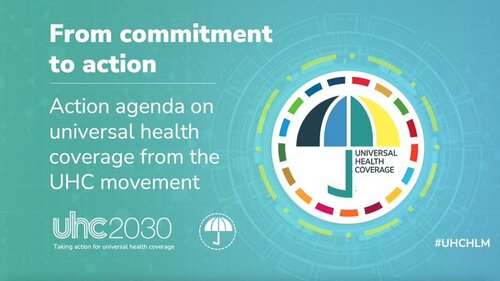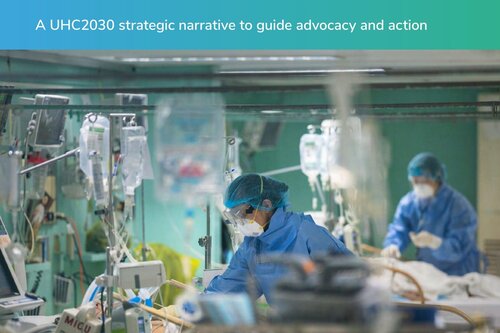In setting the blueprint for the post-2030 sustainable development agenda and leaving no one behind, the Summit of the Future must priorize health and well-being for all, particularly for vulnerable populalations, through action on UHC.
This note outlines key asks for multi-stakeholder hearing on AMR. UHC cannot be achieved without addressing AMR and investing in equitable and resilient health systems for universal health coverage is key to tackling antimicrobial resistance.
This note by PMNCH and UHC2030 outlines key asks for the Summit of the Future. UHC and gender equality must be at the centre of the Summit’s agenda to strengthen our collective response to global threats and achieve the SDGs.
The Action Agenda is a set of action-oriented policy recommendations that country leaders should implement to strengthen resilient and equitable health systems, advance universal health coverage and health security, and deliver health for all by 2030.
Strengthening health systems, with a focus on equity and resilience, is crucial for UHC and health security and contributes to wider socioeconomic progress.
WHO’s support to Member States promotes a concept of UHC which includes the need to foster multi-stakeholder policy dialogue on issues linked to UHC reform.
Health budget literacy, advocacy and accountability is critical for civil society and other stakeholders to influence decision-making processes for universal health coverage (UHC).
The Health for All Advocacy Toolkit provides national-level civil society organizations (CSOs) and health networks with the necessary resources to kick-start advocacy initiatives on universal health coverage (UHC).
Parliamentarian Guide: 6 action steps to achieve universal health coverage provides lawmakers with the tools that they need to undertake tangible actions toward UHC, which include: Lead. Protect. Legislate. Advocate. Invest. Collaborate.
We encourage you to use these tools and support the movement to achieve universal health coverage.


